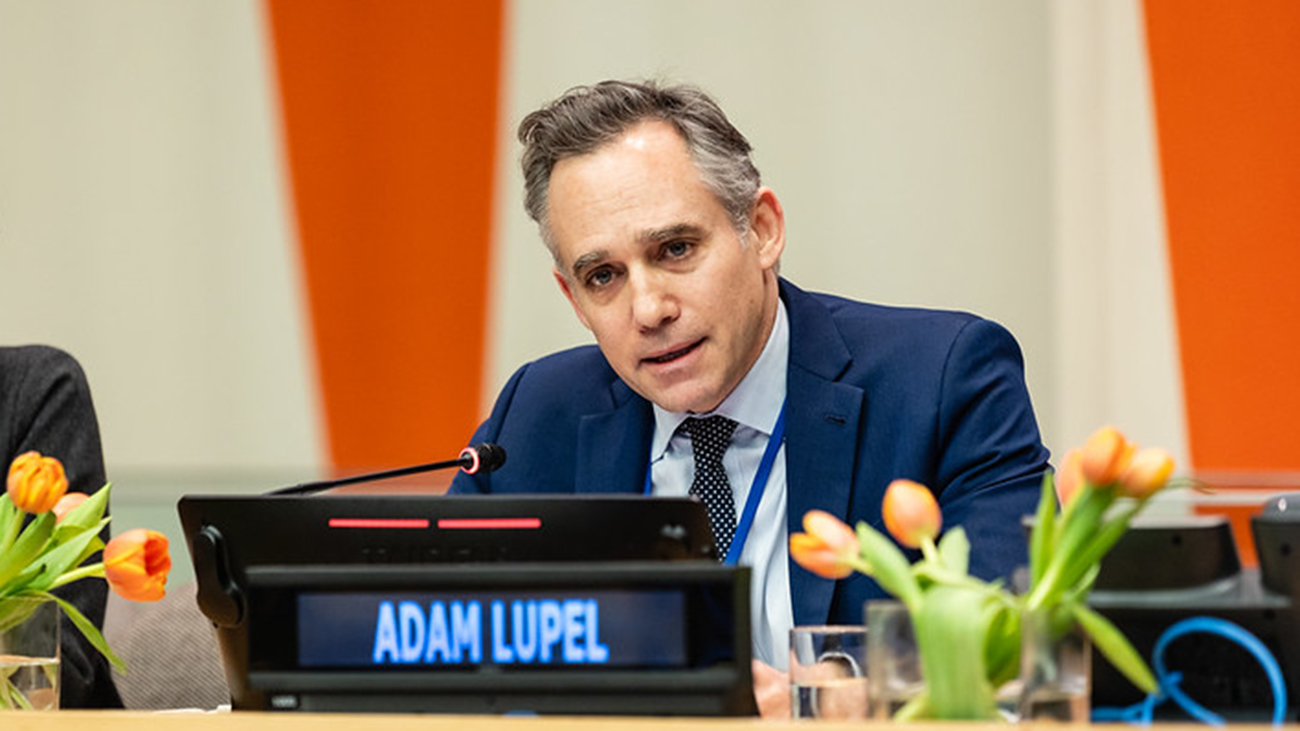
The UN Secretary General’s New Agenda for Peace places a strong emphasis on national action to prevent conflict and achieve sustainable development. As a result, national parliaments have an important role to play in the pursuit of a strengthened system of global governance and a more effective approach to collective security.
From February 8th-9th, over 200 parliamentarians from around the world convened for the 2024 edition of the annual Parliamentary Hearing between the UN and the Inter-Parliamentary Union. The hearing took place as negotiations are ongoing for the Pact of the Future and in anticipation of a Summit of the Future that UNGA President Dennis Francis describes as a “once in a generation opportunity” to fast-track transformative solutions for improved multilateralism. This year’s theme, “Putting an end to conflicts: Prescriptions for a peaceful future,” shaped two days of wide-ranging conversations.
IPI Vice President and COO Adam Lupel spoke at the first meeting of the 2024 Parliamentary Hearing on the panel “The Future of Peace and Security: From good intentions to a renewed collective action.” Dr. Lupel identified the decay of universal commitments to international law and normative constraints on the use of force as the principal strategic threats to peace and security. Building on the New Agenda for Peace’s three core principles of trust, solidarity, and universality, he discussed the corrosive effect that geopolitical divisions and interests have had. Commenting on parliaments’ place in promoting universality, Dr. Lupel said “If we want to rebuild our capacity for collective security, we must demand that our leaders are morally and practically consistent in the application of international norms and the protection of civilians so that all countries, all peoples, feel that the system is there for them. And I think parliaments are well placed to make that demand.” Dr. Lupel also stressed that parliaments need to take a long-term view of cultivating the positive conditions of peace and that they have several tools of conflict prevention, such as preventive diplomacy, accountability mechanisms against excessive use of force, and the integration of a diverse range of actors at all levels of decision making. Similarly, he placed extra emphasis on the pursuit of gender equality and the eradication of gender-based violence as a core goal of the New Agenda for Peace that Parliaments are well-placed to effectively champion and achieve.







